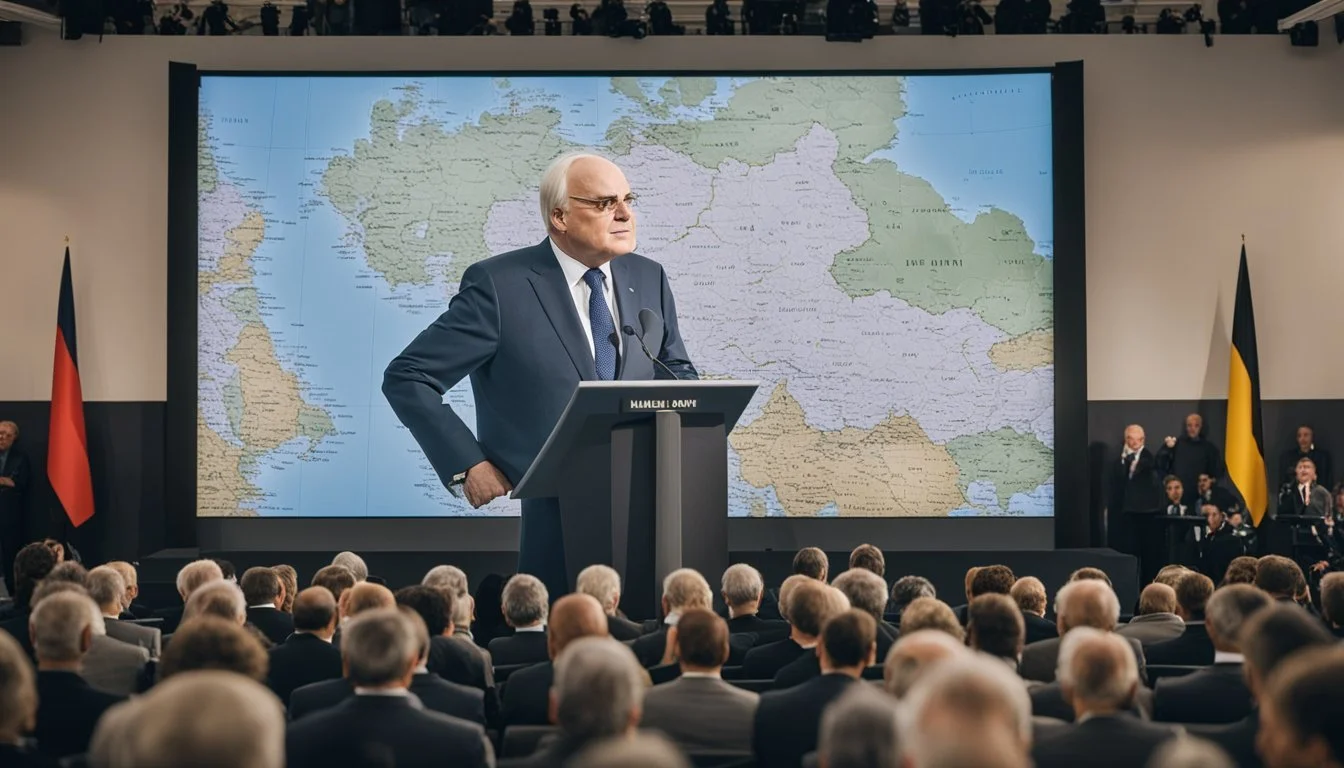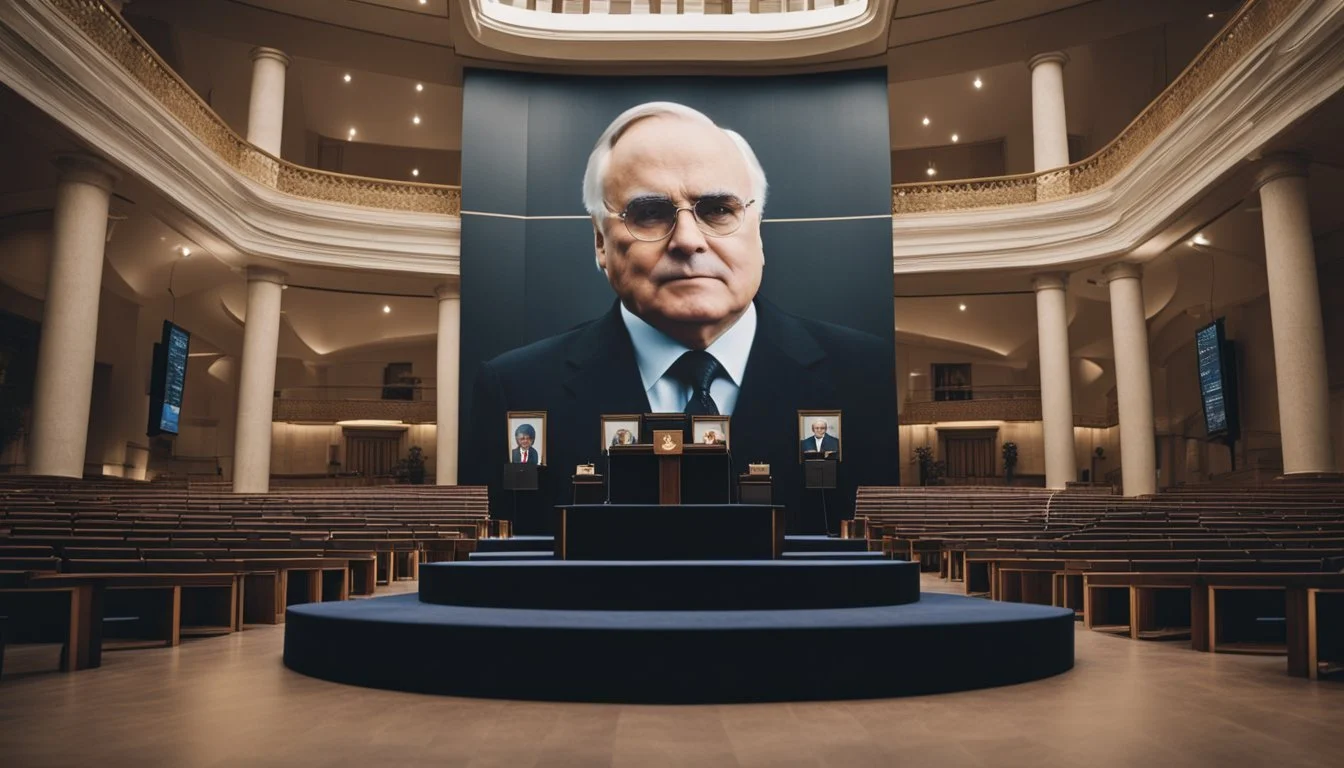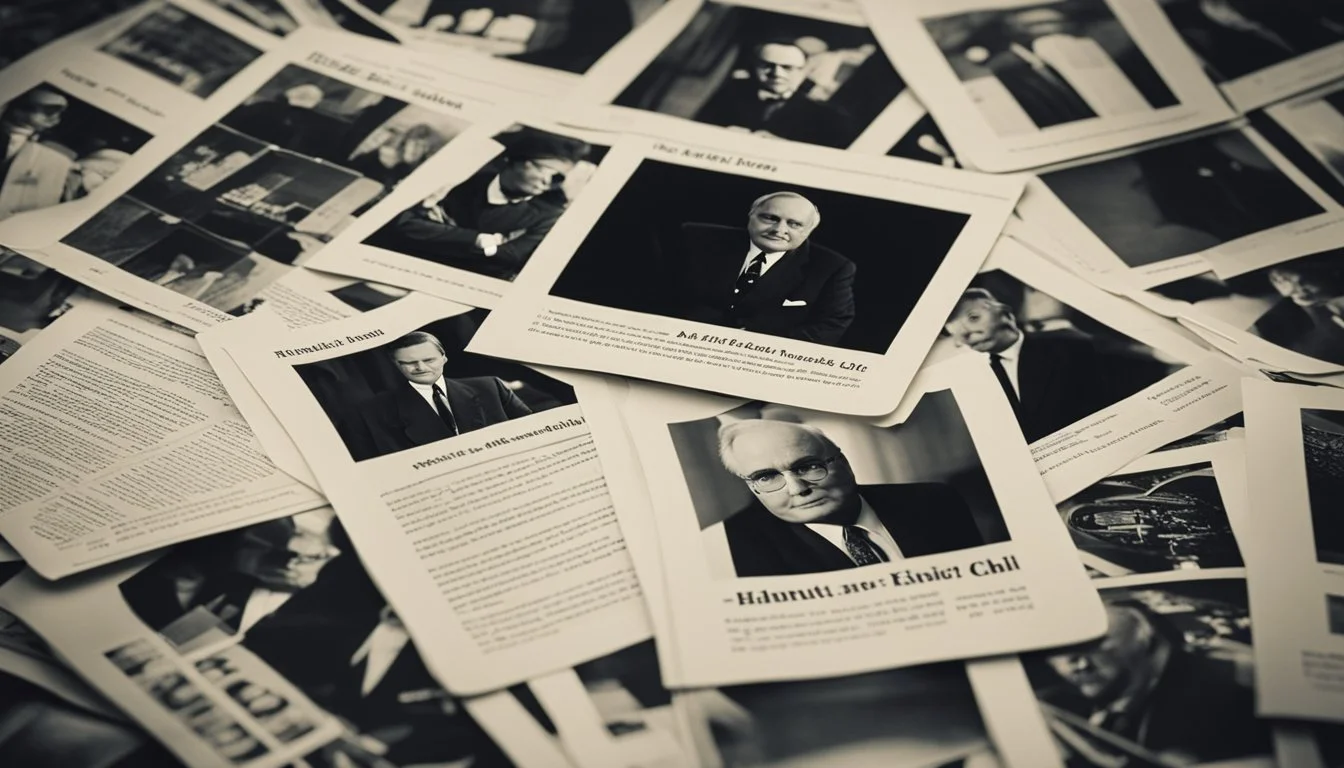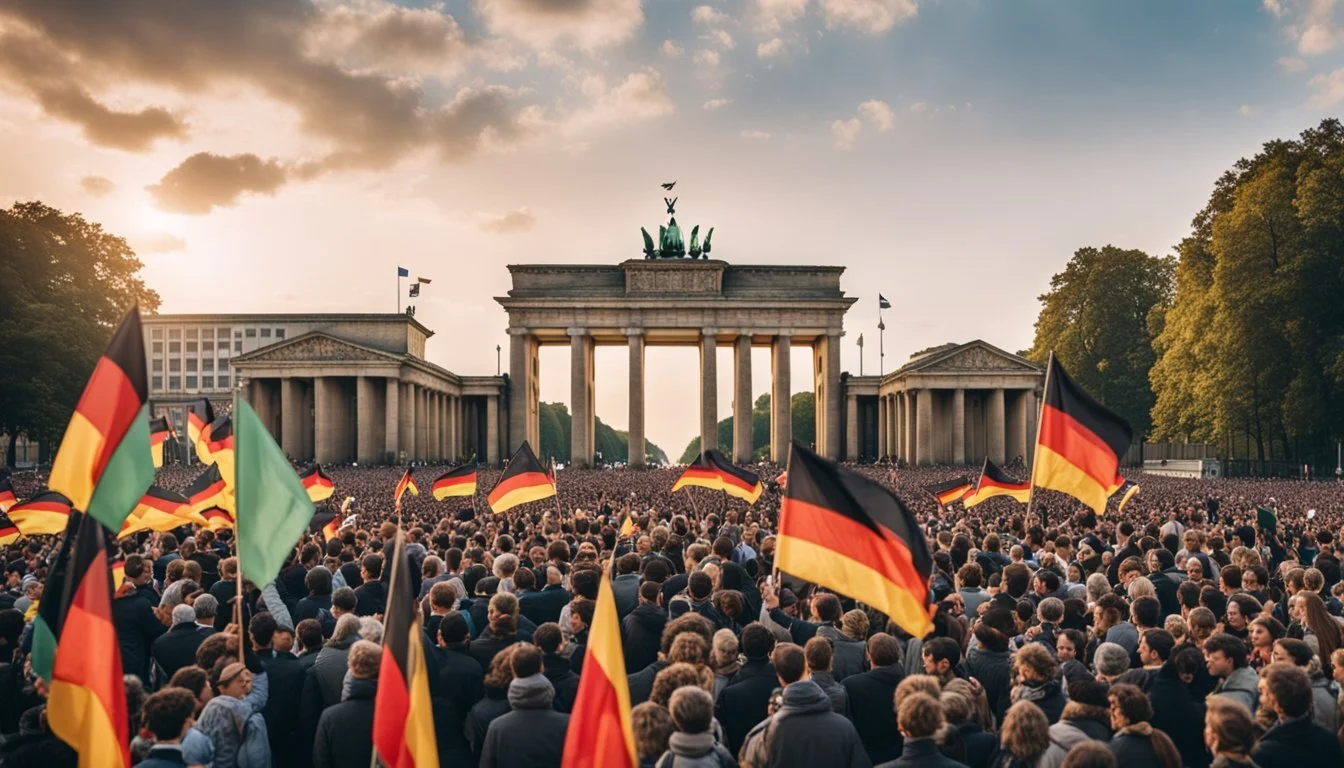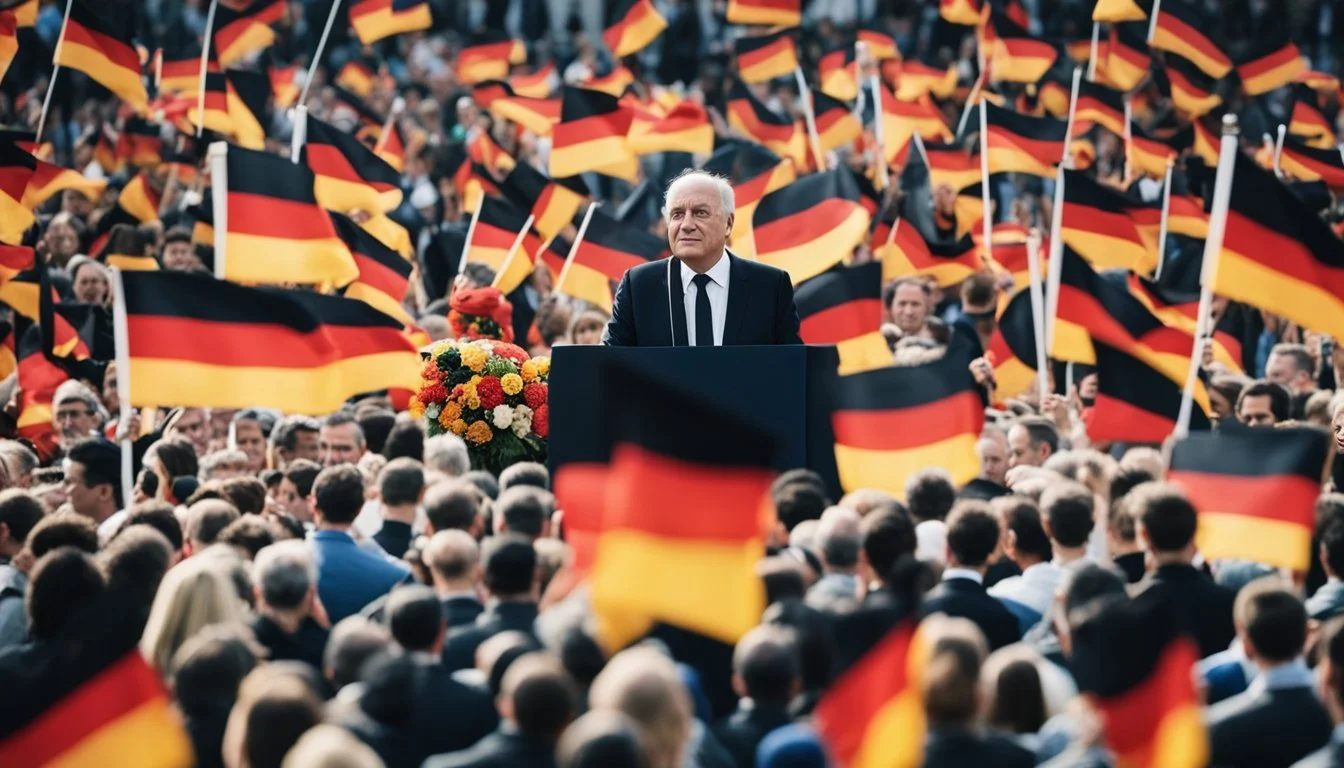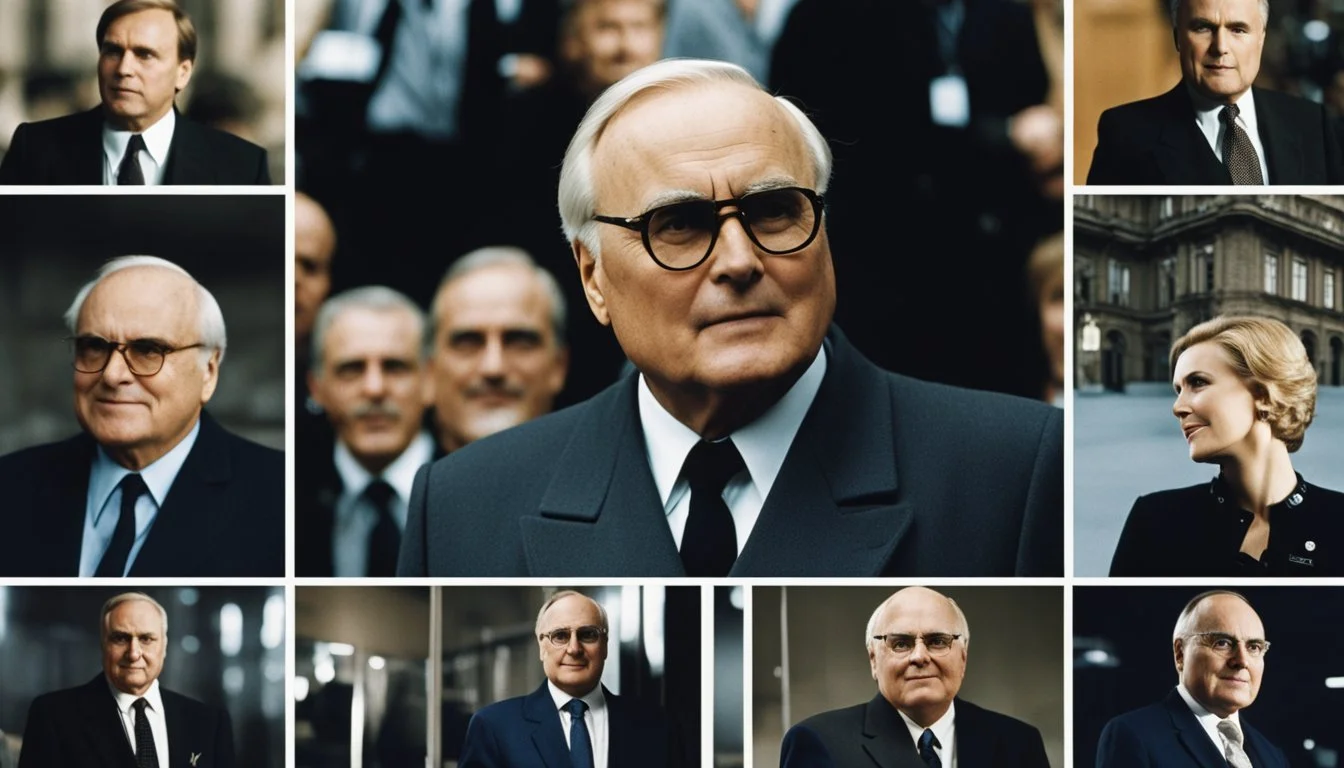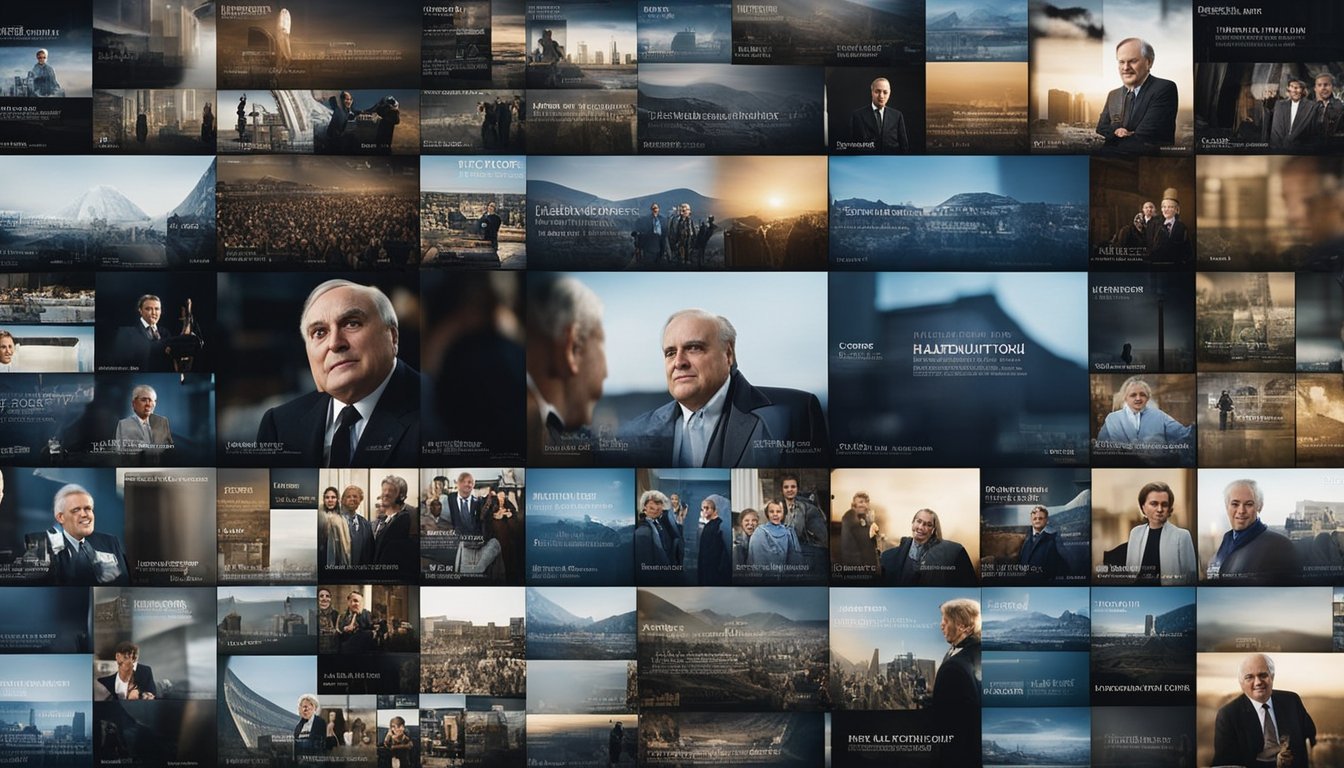8 Films Exploring the Leadership of Helmut Kohl
A Cinematic Insight
Helmut Kohl, the long-serving German chancellor, played a crucial role in shaping modern Europe through his leadership during Germany's reunification and the end of the Cold War. His political influence extended beyond Germany, impacting European unity and the global stage.
This article highlights eight films that delve into various facets of Kohl's leadership, providing valuable insights into his strategies, challenges, and achievements. These cinematic explorations offer a multidimensional view of a statesman whose decisions continue to reverberate through history.
1) The Iron Chancellor
A pivotal figure in German history, Helmut Kohl earned the nickname "The Iron Chancellor" for his strong leadership and determination.
One film exploring his impactful tenure is The Unification Chronicles (2017). This film delves into Kohl's remarkable role in the reunification of Germany, showcasing his political acumen and steadfast resolve.
Another significant work is Kohl's Legacy (2018). It captures moments from his 16-year tenure as Chancellor, from 1982 to 1998, emphasizing his unwavering commitment to unity and European integration.
The People's Chancellor (2019) provides a detailed portrayal of Kohl's efforts to meet and understand ordinary GDR citizens, highlighting his human side amidst political maneuvers.
The Berlin Wall's Fall (2020) follows the dramatic events leading to the collapse of the Berlin Wall in 1989, focusing on Kohl's strategy and diplomacy during this critical period.
Scandal and Success (2021) examines the duality of Kohl's legacy. While celebrated for his leadership in reunifying Germany, the film also addresses the corruption scandal that marred his final years in office.
With these films, viewers gain a comprehensive view of Helmut Kohl's leadership, providing both a historical context and a deep dive into his influential role.
For more on these films, visit The Unification Chronicles (2017), Kohl's Legacy (2018), The People's Chancellor (2019), The Berlin Wall's Fall (2020), and Scandal and Success (2021).
2) Kohl's Gift to History
Helmut Kohl's leadership left a lasting impact on the fabric of European and world history. He played a pivotal role in the reunification of Germany, a significant event that reshaped the geopolitical landscape of Europe. His actions are depicted in several films capturing his strategic diplomacy and vision for a unified Germany.
One notable representation is the film "Dresden, 1989" (2019). It highlights his visit to Dresden post the Berlin Wall's fall. This momentous visit symbolized a step towards unity for Germany. Kohl's foresight and assertiveness in this period are critical elements portrayed in the film. For more information, see IMDb.
"The German Chancellor in the GDR" (1988) showcases his audacious secret visit to East Germany. The film delves into how he evaded the Stasi, reflecting his determination to engage with both sides of the divided nation. It provides a dramatic view into a leader's courage to bridge divides. More on this film can be found on IMDb.
Another film shedding light on Kohl’s diplomacy is "Helmut Kohl and NATO Enlargement" (2020). This documentary explores his role in NATO's expansion, highlighting his strategic efforts to ensure peace and stability in post-Cold War Europe. His diplomatic maneuvers had wide-reaching effects beyond just Germany. Details available on IMDb.
These films provide insight into Helmut Kohl’s contributions to both German reunification and broader international diplomacy.
3) Kohl: A Man of Unity
In "Chancellor of Unity" (2008), the film delves into Helmut Kohl's pivotal role in the reunification of Germany. Through archival footage and expert analysis, viewers gain insight into his strategic diplomacy and vision for a unified Germany. More Information
"Helmut Kohl: The Architect of German Unity" (2015) presents a documentary that highlights his efforts in bringing East and West Germany together. Interviews with political figures and historians provide context to his leadership. More Information
"Reunification: The Kohl Legacy" (2019) offers a comprehensive view of Kohl’s impact on European politics and German reunification. The film covers significant events leading up to and following the fall of the Berlin Wall. More Information
Each of these films showcases different aspects of Kohl's leadership and dedication to German unity. By exploring these films, viewers can understand the complexities and challenges Kohl faced during this historic period.
4) The Berlin Wall's End
The fall of the Berlin Wall in 1989 was a significant milestone in Helmut Kohl's leadership. The Wall had divided East and West Berlin for 28 years, symbolizing the ideological rift between the Soviet bloc and the West.
Kohl, as West German Chancellor, played a pivotal role during this period. He saw the breach of the Wall as an opportunity for reunification.
The process began unexpectedly, triggered by a misunderstanding within the GDR leadership, leading to the Wall opening on November 9, 1989. Kohl's quick and assertive actions were instrumental in steering the course toward reunification.
He stated, "What belongs together will now grow together," capturing the sentiment of the time. This moment marked not just the physical dismantling of the Wall, but also the beginning of a unified Germany.
Films exploring Kohl's leadership around the time of the Berlin Wall’s end include "The Promise" (1995) and "Good Bye Lenin!" (2003). More about "The Promise". More about "Good Bye Lenin!". These films provide a cinematic look at the era and Kohl’s influence.
Kohl's leadership during the fall of the Berlin Wall was marked by his vision for a unified Germany and his capacity to adapt quickly to unprecedented changes.
5) German Reunification Films
Several films focus on the historical event of German reunification, highlighting Helmut Kohl's pivotal role.
1. Bonn: West German Chancellor (1990)
In this documentary, Kohl's address to the German parliament illustrates how close the nation was to unity, shortly before the official reunification. The film captures a critical moment in history. More Information
2. Chancellor Helmut Kohl’s Speech (1989)
A documentary chronicling Kohl's visit to Dresden in December 1989. Here, Kohl's speech and the enthusiastic reception portrayed in the film emphasize his influence during this transformative period. More Information
3. Germany - Helmut Kohl and the Struggles of Reunification (1990)
This film documents Kohl’s leadership throughout the reunification process and details the challenges Germany faced during this significant period. It includes pivotal moments and political milestones. More Information
4. The Fall of the Berlin Wall (1989)
A documentary focusing on the events leading up to the fall of the Berlin Wall and the immediate aftermath. Kohl's decisive actions post-fall are highlighted, reflecting his leadership during the reunification. More Information
5. Treaty on European Union (1991)
This film explores Kohl’s role in the negotiations that led to the Treaty on European Union. By illustrating his pivotal involvement, it connects the reunification of Germany to broader European integration. More Information
These films collectively offer a comprehensive look at Helmut Kohl's leadership during the reunification of Germany.
6) Triumphs of Helmut Kohl
Helmut Kohl is celebrated for his significant role in the reunification of Germany. As the Chancellor of West Germany, Kohl's strategic diplomacy and persistent efforts led to the fall of the Berlin Wall in 1989 and the subsequent reunification in 1990. This was a pivotal moment in European history.
Kohl's contributions to the creation of the European Union were substantial. He was a strong advocate for the Maastricht Treaty, which laid the foundation for the EU and introduced the euro. His vision of a united Europe significantly shaped the continent's future political and economic landscape.
Despite political scandals later in his career, Kohl's legacy as a leader who transformed German and European history endures. His leadership during the critical period of the Cold War's end and the integration of East and West Germany continues to be remembered and studied.
These triumphs highlight Kohl's impact on Germany and Europe. His legacy is a testament to his leadership abilities and commitment to European unity.
7) Political Journeys of Kohl
Helmut Kohl’s political career began as Minister-President of Rhineland-Palatinate, a federal district of Germany. He laid the foundations for his public office roles with strategic decisions that positioned him as a major player in German politics.
In October 1982, Kohl's political journey reached a significant milestone when he became the Chancellor of West Germany. His tenure was marked by his conservative leadership and crucial decisions that shaped the nation's future.
Kohl was a key architect in the reunification of Germany. His diplomatic skill and vision led to the merging of East and West Germany, a historical achievement that altered the course of European politics.
During his time as Chancellor, Kohl's influence extended beyond Germany. He was instrumental in the establishment of the single European currency, the euro. His efforts in promoting European integration solidified his legacy as a central figure in continental politics.
Additional Resources
Helmut Kohl: The German Chancellor Who Wished for Too Much (2017) - IMDB
The Political Journey of German Chancellor Helmut Kohl (2017) - Arte
When Helmut Kohl Fooled the Stasi (1988) - Arte
A German Giant: The Political Legacy of Helmut Kohl (2017) - Amazon
Helmut Kohl, 1930-2017: King of Two Unifications (2017) - Haaretz
8) Leadership in Turbulent Times
"Leadership in Turbulent Times" (2018) explores the skills and challenges of effective leadership through the lives of prominent figures, including Helmut Kohl. This documentary examines how Kohl navigated Germany through the treacherous waters of reunification.
Kohl's ability to foster unity and lead with a steady hand is a key focus of the film. His diplomatic skills and political acumen were crucial during a period marked by uncertainty and change.
The film highlights Kohl's decision-making processes and his efforts to maintain stability. It showcases his role in transforming Germany during one of its most critical historical moments.
By providing an insightful look at Kohl's leadership, this documentary serves as a valuable resource for those interested in political history and leadership strategies.
Kohl's Rise to Power
Helmut Kohl's political journey saw him progress from a young political enthusiast to the powerful Chancellor of Germany, playing a pivotal role in both the country's reunification and its positioning in global affairs.
Early Political Career
Helmut Kohl began his political career in the 1950s as a member of the Christian Democratic Union (CDU). His political activity was rooted in the Rhineland-Palatinate region of West Germany where he quickly rose through the ranks. By 1969, Kohl had become the Minister-President of Rhineland-Palatinate, showcasing his leadership skills.
In this role, he focused on modernizing the state's infrastructure and education system. His pragmatic approach and ability to build consensus made him an influential figure within the CDU. Kohl's leadership style combined firm political convictions with a flexible approach to coalition-building, which significantly contributed to his rapid ascent in German politics.
Chancellor of Germany
Kohl became the Chancellor of Germany in 1982 following a constructive vote of no confidence against then-Chancellor Helmut Schmidt. His tenure is marked by critical events such as the fall of the Berlin Wall in 1989 and the subsequent reunification of Germany. Kohl's strategic vision and diplomatic skills were instrumental in leading the reunified Germany.
Under his chancellorship, Kohl advocated for European integration, playing a key role in the establishment of the European Union and the introduction of the Euro. His ability to navigate both domestic and international politics underscored his effectiveness as a leader. Kohl remained in office until 1998, making his tenure one of the longest in German history.
Significant Policies and Achievements
Helmut Kohl, as a transformative leader, implemented significant policies that had lasting impacts. His leadership was marked by economic reforms and the historic unification of Germany.
Economic Reforms
Helmut Kohl took bold steps to revitalize the German economy, initiating a series of market-oriented reforms. To combat stagnation, he reduced public spending and implemented tax cuts aimed at stimulating growth.
Key measures included:
Tax Reforms: Reduction in income and corporate taxes.
Privatization: Transitioning state-owned industries to the private sector.
Labor Market Policies: Introducing flexibility into labor regulations to encourage employment.
These actions were crucial in setting the stage for Germany's economic stability and growth in the subsequent decades. Kohl’s reforms not only revitalized the German economy but also positioned it competitively on the global stage.
German Reunification
The reunification of East and West Germany stands as Helmut Kohl's most monumental achievement. Following the fall of the Berlin Wall in 1989, Kohl moved swiftly to integrate the two Germanys.
Key actions included:
Negotiations: Securing agreements with international allies, particularly within NATO and the European community, to support reunification.
Economic Measures: Implementing the economic merger of East and West Germany, introducing the Deutsche Mark as the common currency.
Social Integration: Addressing the social and infrastructural needs of the former East Germany.
These efforts culminated in the official reunification on October 3, 1990, marking a pivotal moment in world history and reshaping the European geopolitical landscape. Kohl's vision and diplomatic skills were instrumental in ensuring a peaceful and successful reunification.
Helmut Kohl's Leadership Style
Helmut Kohl's leadership focused on strategic vision while fostering team dynamics and mentorship. His approach played a crucial role in shaping Germany and its place in the world during and after the Cold War.
Strategic Vision
Helmut Kohl's strategic vision was pivotal in his efforts to transform Germany, especially during the period of reunification. One of the key elements of his leadership was his commitment to unifying East and West Germany. Kohl's Ten-Point Plan for German Unity, introduced in 1989, laid out clear steps for achieving this monumental goal.
Kohl's insight into the geopolitical landscape allowed him to navigate complex international relations. His relationships with leaders like Mikhail Gorbachev and Boris Yeltsin were instrumental. By engaging in direct dialogues, Kohl secured the support necessary for Germany's reunification. His ability to persuade and collaborate with global leaders underscored his strategic foresight.
Furthermore, Kohl's economic policies underscored his strategic mindset. His belief in a unified European market led to strong advocacy for the European Union, promoting economic stability and growth. His strategic vision extended beyond national borders, influencing Europe’s future.
Team Building and Mentorship
Kohl excelled in building a cohesive team and mentoring future leaders. He cultivated a collaborative environment within his party and the government. By surrounding himself with capable advisers and ministers, Kohl ensured that diverse perspectives were considered in decision-making processes.
He was known for his mentorship, supporting the development of future political figures. Angela Merkel, who later became Germany's Chancellor, benefited significantly from Kohl's guidance. He recognized her potential early on and provided opportunities for her growth within the party.
Kohl's approach to team building emphasized trust and loyalty. He valued open communication and encouraged his team to engage in frank discussions. This created a dynamic where innovative ideas could flourish, contributing to the overall success of his leadership.
By emphasizing mentorship and team cohesion, Kohl not only led effectively during his tenure but also paved the way for a new generation of leaders to continue his legacy.

